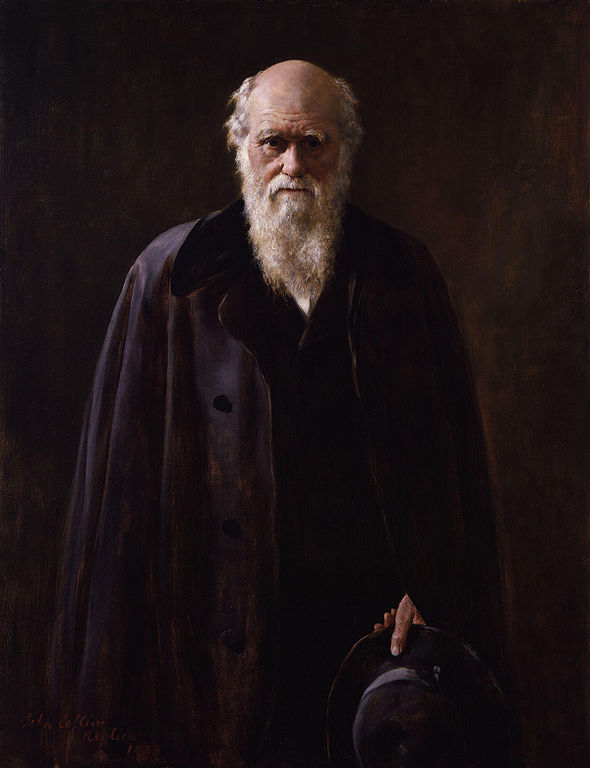1. Three things impress me the most about this book, from a writing perspective: the structure, the tone, and the imagination of the author.
I can say only that the occurrence of mentality produces certain minute astronomical effects, to which our instruments are sensitive even at great distances. These effects increase slightly with the mere mass of living matter on any astronomical body, but far more with its mental and spiritual development. Long ago it was the spiritual development of the world-community of the Fifth Men that dragged the moon from its orbit. And in our own case, so numerous is our society today, and so greatly developed in mental and spiritual activities, that only by continuous expense of physical energy can we preserve the solar system from confusion.—Structurally, the organization successfully keeps the whole project legible and varied—which could be a near run thing based on the scope of this book. Brilliantly, he starts with the familiar: you and I are the first men that he spends 37.5% of the book on. In that opening, he’s setting up reference points that he will get back to in later men, allowing us to have a way to understand those later men. He’s also slowly stripping away characters and narrative traditions to embrace the biological or anthropological reporting the rest of the book will be patterned on. He spends a lot of time on the first men: even the intro to the version I read advised the reader to skip the first four parts due to their repetitiveness and their placing the book so specifically in 1930. Eventually, he continues in bite-sized steps to the eighteenth men, the structure of steps allowing the reader to keep track of how we get there, one step at a time. More time is spent on the first, second, fifth, and eighteenth men, all Stapledon's favorites except the first. Some of the later variations only receive a sentence or two of description. Let me break down the pacing:
•the first 6 chapters are given over to the first men;
•chapters 7-9 to the second;
•chapter 10 to the third;
•chapter 11 to the fourth and fifth;
•chapter 12 the fifth alone;
•chapter 13 to the sixth, seventh, and eighth;
•chapter 14 to the ninth, tenth, eleventh, twelfth, thirteenth, fourteenth, fifteenth, sixteenth, and seventeenth;
•and the final two chapters, 15-16, to the eighteenth men.
HP Lovecraft believed it a "disproportionate acceleration of the tempo towards the end." This pacing struck me two ways: either Stapledon is not being as fair and evenhanded with his philosophical opponents in the second half as he was in the first, or he ran out of steam as a writer. You know when you try and fit a word onto a poster and you kinda run out of room so you mash all the letters together there at the edge and it's obvious that you ran out of room. That's what this "acceleration of tempo" feels like. This disproportion between how much time is spent on the first men, and how much time is spent on the tenth through seventeenth men, is frustrating as a reader. It feels like a little more planning or pruning could have helped.
—He never loses sight of wonder in his writing. He fills his pages with life, beauty, horror, and tells all with this tone of wonder that is necessary to the readability of the dryer philosophical theme. He chooses to repeat this biological reporting form for his organization, and it's a big risk—writing a book without characters for the reader to relate to. But Stapledon's descriptions allow wonder to carry the whole thing:
The sky turned black. The Arctic summer became a weird and sultry night, torn by fantastic thunderstorms. Rain crashed on the ship's deck in a continuous waterfall. Clouds of pungent smoke and dust irritated the eyes and nose. Submarine earthquakes buckled the pack-ice.—The imagination of the author is the other impressive aspect—and probably the most influential. He packs a lot of science fiction ideas in here, and the structure is what allows that variety. After all, he’s building at least eighteen worlds over two billion years. That’s a lot of room for ideas. Some are explored in the depth of paragraphs, others mere phrases. The influence of these ideas has been widespread: the fifth men are exactly Iain M Banks’ Culture Series, the moonfall that destroys them is Neal Stephenson’s Seveneves, Arthur Clarke’s 2001 is obviously inspired by the whole thing, Bradbury seems to have read this before writing “The Fire Balloons”, CS Lewis admits to stealing from Stapledon in his Space Trilogy—and the list could go on for days. So, Stapledon had an imagination that could run this wild, structure his book to allow his imagination to run this wild, and then let his imagination run this wild. Some of these ideas seem prescient when you realize the book was written in the 1920s. Staggering.
A year after the explosion, the ship was labouring in tempestuous and berg-strewn water near the Pole. The bewildered little company now began to feel its way south; but, as they proceeded, the air became more fiercely hot and pungent, the storms more savage. Another twelve months were spent in beating about the Polar sea, ever and again retreating north from the impossible southern weather.
2. But that’s not to say that the theme of his book is these ideas. The theme is very clearly what makes us human. He has set up some really fascinating tensions within the book, and they reflect what make us human: Science and Art; Spirituality and Religion; Physical and Mental Environments; Heritage and Legacy; Ingenuity and Rationality; Mysticism and Empiricism. His project is a philosophical one—he was a philosopher whose books were not selling, so he started writing science fiction instead in order to expose more people to his ideas. He tries to show what makes us human, examine what we could be, and then show a path to his utopia—a utopia which even he admits ultimately fails, but it fails in instructive ways. The list of all eighteen men will help illuminate this theme:
•He begins by describing us today, the first men. But we are too short-term in our thinking, our priorities are wrong, and we embrace every new thing that comes along without proper consideration, which eventually kills us.
•The second men are one of his three favorites in the book. They’re the colloquial great men of the first men. They’re godlike, aryan giants who have more empathy, better perception, more intellect, better skills at science, math, and philosophy. But they are too much in their own heads and the horror of existence within the natural world dooms them. Heads in the clouds, they are destroyed by practical considerations. Well, practical consideration and the martians, those hive mind, radioactive, industrial fascists.
•The third men are Rousseau's wet dream. Sexually liberated, mystical about pain, focused entirely on music and the natural world. They are cunning more than intellectual. Eventually, they realize their deficiency in intellect and sciences, have an existential crisis, and end up creating their successors using the only science they know—biology.
•The fourth men are the artificial Brads: big brains living in their own towers. They are pure intellect, with no “normal instinctive responses,” to quote Stapledon, though they are natively curious and telepathic. The telepathy is a result of using some martian genetics. They have no sexuality, no community, no exercise, no values. Eventually they stagnate scientifically and create their successors.
•The fifth men are one of Stapledon’s favorites. They are Aristotilian in their balance in all things—including emotions. Their self-repairing bodies are long-lived and filled with pre-taught instincts developed from experience and reason, but they die at the proper time. They are a balance between the academic fourth men and the nature-obsessed third men: they value the influence of the natural primitive, but focus equally on art and science. They are telepathic due to martian genes, but they still disagree on a short-term basis. They recognize the reality of futility, but can only integrate it through religion. They are so perfect they unlock the secret to accessing the memories of our ancestors directly. But this leads to the infiltration of the imperfections of those past men. Through their inability to integrate futility and the influence of the past’s evils, they begin to unravel. Suddenly the moon falls in on them. This isn’t explained during their section, but a later chapter (15.4) mentions that mentality influences physicality and the perfection of their “spiritual development” pulls the moon in on them. However, they’re still great enough to escape to Venus, where they discover the Venerians, who are a base-three species instead of the human base-two. The fifth men murder them all as their only choice is suicide or murder.
•The sixth men are the first born-on-Venus ones. Part are sea-based seal kings that get wiped out by the land-based portion. These are essentially the fifth men at first, but without telepathy their disagreements are more common and they devolve to the first men. Eventually their martian genetic leftovers almost wipe them out because man is not made to be martian, duh. In Stapledon’s words, they were undone by what was inherent at their beginning. They manufacture their successors before succumbing.
During the next two hundred million years all the main phases of man's life on earth were many times repeated on Venus with characteristic differences. Theocratic empires; free and intellectualistic island cities; insecure overlordship of feudal archipelagos; rivalries of high priest and emperor; religious feuds over the interpretation of sacred scriptures; recurrent fluctuations of thought from naïve animism, through polytheism, conflicting monotheisms, and all the desperate "isms" by which mind seeks to blur the severe outline of truth; recurrent fashions of comfort-seeking fantasy and cold intelligence; social disorders through the misuse of volcanic or wind power in industry; business empires and pseudo-communistic empires—all these forms flitted over the changing substance of mankind again and again, as in an enduring hearth fire there appear and vanish the infinitely diverse forms of flame and smoke. But all the while the brief spirits, in whose massed configurations these forms inhered, were intent chiefly on the primitive needs of food, shelter, companionship, crowd-lust, love-making, the two-edged relationship of parent and child, the exercise of muscle and intelligence in facile sport. Very seldom, only in rare moments of clarity, only after ages of misapprehension, did a few of them, here and there, now and again, begin to have the deeper insight into the world's nature and man's. And no sooner had this precious insight begun to propagate itself, than it would be blotted out by some small or great disaster, by epidemic disease, by the spontaneous disruption of society, by an access of racial imbecility, by a prolonged bombardment of meteorites, or by the mere cowardice and vertigo that dared not look down the precipice of fact.•The seventh men are the bird-men. They’re back to Rousseauian naturalism, but with Aristotelian balance applied—orgasmic ecstasy in the air, pragmatic practicality on the ground. They accept futility. They are practical and artistic. But they are also undone by their inherently unscientific nature. They assign their flightless, overly pragmatic cripples to make their successors, then they go out in the noble mass racial suicide into an active volcano.
•The artificial eighth men are giant engineers, warlike but still civilized in the sense that they don’t wage total wars. Strife is a cathartic religious experience for them. They’re industrialists who create their own successors because the sun is expanding, and they have to move to Neptune.
•The artificial ninth men are way too artificial to survive—hastily designed, fragile and miniature. But they do spark evolution and evolve extensively into the tenth men.
•The tenth are evolved naturally, so they are getting back towards the mysterious influence of nature. They’re manipulative rabbit tribalists who know no science, so they are killed by microorganisms.
•Through evolution, the tenth branch into the eleventh, the tusked men and their hunter-trappers. These are the shortest described by Stapledon, not even getting a name:
One of these early species, crouched and tusked, was persistently trapped for its ivory by an abler type, till it was exterminated.•The twelfth are also evolved. They’re squatters with long muzzles. They’re sedentary, social, and industrious, but destroyed by a warrior kind.
•The thirteenth, the warriors, are as broad as they are tall. They are erect and bloody minded, which keeps them from progressing as a society, and they eventually just wear themselves out.
•The fourteenth are the thick-set big brains who get back to the first men’s levels. They invent a religion of love, but they are undone by imperfect spirituality and destroy themselves.
•The fifteenth are amazing again, another second men, sort of. They work closely with their environment to gain power through geo-thermal means. They are united as a culture. Their spirituality is about fulfilling human capacities. Their main goal is to abolish the five evils: disease, suffocating toil, senility, misunderstanding, and ill-will. They realize that they’re imperfect inherently, so they decide to create their successors, not because they need to, but from their spiritual desire to perfect and exceed.
•The artificial sixteenth are analogous to the fifth men, who Stapledon loved. They have a human telepathy now, instead of the disastrous martian one. Ingenious rather than rational, they have better perception and finer motor control. They determine to abolish personal ego as the mental illness it is. They again enter the past minds, but take the past’s problems as something to solve, not something to influence their day-to-day lives. They advanced as far as man could outside of group minds, but they are still stymied by three ancient problems: time, the mind’s relation to the world, and loyalty to life versus dispassion. They are unable to solve these three, so they choose a noble sacrificial leap over stagnation, and design their successors.
•The seventeenth are the first group mind men, but being designed by single men, they’re only partially successful. The realities of group consciousness is so out of context to single men, except Stapledon himself of course, that they fail. But they step aside after making the eighteenth men.
•The eighteenth men are the perfection of the group mind, and damn close to that of all humanity, nay, all the universe, according to Stapledon. They are both more human and more animal, in their own words. They dispassionately accept reality and futility and fate. Relation with time is significantly different: time is cyclic, not repetitive, an abstraction. They are more minutely tied into their environment on both a universal and microscopic scale. They are cyborgs with ninety-six member sexual and mental groups, that can then form larger and larger groups until the whole race is united through extreme intimacy, tempermental harmony, and complementariness. They think man is perfect only in how nearly it can get to aping the universe itself in organization—and the agreement of the group minds fulfills the cosmos almost perfectly. That almost is key. Their imperfection infects stars themselves with a disease and they are doomed (This is a reach, but since the disease portion is near the fifth men pulling the men in on themselves portion, I don’t think it’s an unreasonable stretch to make). This imminent death undoes them by giving them a defined goal and deadline. They lose their dispassion in chasing their goal. They desire to spread nineteenth men to the stars and try to continue mentality, but they have not enough of the zeal of primitive man to achieve their ultimate goal. There is not enough time left. This tears them apart. In other words, Stapledon wants us to get to a place where our morals are less limiting to our intellect, where we appreciate the well done good and evil act alike, and where the only things left unanswered are what the future holds and what happens after death. But he’s afraid we’ll never get to be there because there is too much in our past that we have learned the wrong lessons from.
The ether ship is in a manner symbolic of our whole community, so highly organized is it, and so minute in relation to the void which engulfs it. The ethereal navigators, because they spend so much of their time in the empty regions, beyond the range of "telepathic" communication and sometimes even of mechanical radio, form mentally a unique class among us. They are a hardy, simple, and modest folk. And though they embody man's proud mastery of the ether, they are never tired of reminding landlubbers, with dour jocularity, that the most daring voyages are confined within one drop of the boundless ocean of space.
Recently an exploration ship returned from a voyage into the outer tracts. Half her crew had died. The survivors were emaciated, diseased, and mentally unbalanced. To a race that thought itself so well established in sanity that nothing could disturb it, the spectacle of these unfortunates was instructive. Throughout the voyage, which was the longest ever attempted, they had encountered nothing whatever but two comets, and an occasional meteor. Some of the nearer constellations were seen with altered forms. One or two stars increased slightly in brightness; and the sun was reduced to being the most brilliant of stars. The aloof and changeless presence of the constellations seems to have crazed the voyagers. When at last the ship returned and berthed, there was a scene such as is seldom witnessed in our modern world. The crew flung open the ports and staggered blubbering into the arms of the crowd. It would never have been believed that members of our species could be so far reduced from the self-possession that is normal to us. Subsequently these poor human wrecks have shown an irrational phobia of the stars, and of all that is not human. They dare not go out at night. They live in an extravagant passion for the presence of others. And since all others are astronomically minded, they cannot find real companionship. They insanely refuse to participate in the mental life of the race upon the plane where all things are seen in their just proportions. They cling piteously to the sweets of individual life; and so they are led to curse the immensities. They fill their minds with human conceits, and their houses with toys. By night they draw the curtains and drown the quiet voice of the stars in revelry. But it is a joyless and a haunted revelry, desired less for itself than as a defence against reality.
—I’m sure I haven’t caught everything he’s saying and arguing for, but the journey was fascinating. I enjoy how much he lets his opponents talk, before he eviscerates them. There are points I agree with: acceptance of reality is key, reality is futility, balance is beneficial, science and art are nothing without each other. But other points I disagree with: Stapledon’s statements in support of balance in all things contradict his attitude valuing dispassion above all; the group-think and unity trends contradict extreme complementarianism; and the idea that fulfilling human capacities through group-think and copying the stars seem to undermine the basic individuality of humanity.
3. In short, this is a fascinating and important book. All these ideas spark new ideas on almost every page! But it's importance is that this book is the hinge point between the scientific romances of Verne and Wells, between the space operas published by Hugo Gernsbeck, and science fiction as we know it today. This isn't a great book: it's a slog to get through and I think the anthro-report format is useful but boring. However, this is an important book. By reading and re-reading this, I realize the impact, the influence, and the shift Stapledon brought about. Of course, he's not operating in a vacuum, but he is cutting edge for his generation. What it most reminded me of, the second time through, was Edward Bellamy's Looking Backward, with less characters.






.jpg/477px-Frankenstein's_monster_(Boris_Karloff).jpg)

























.jpg/640px-Coastal_medaow_KEFJ_(9025145877).jpg)